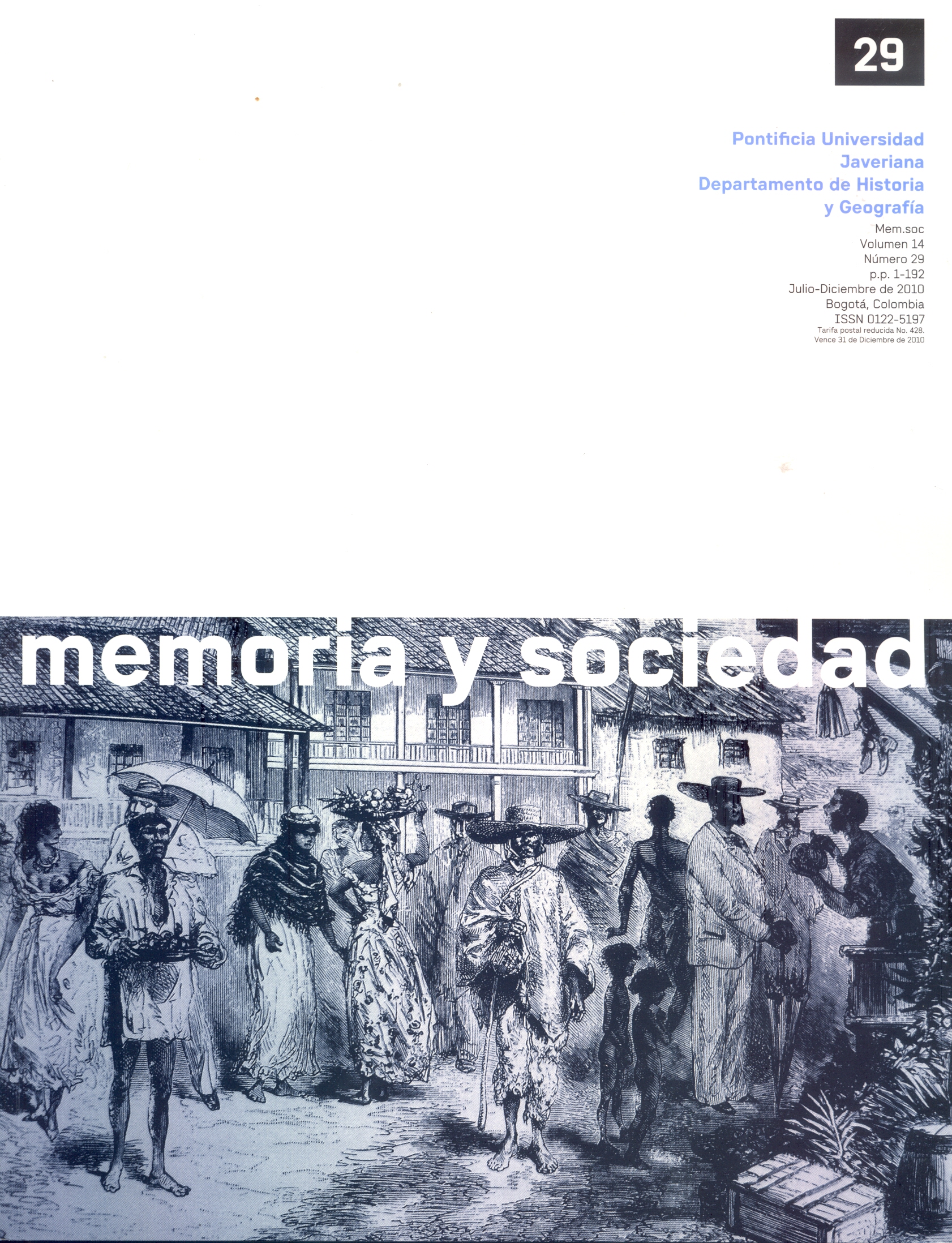Abstract
The aim of this article is to show the ways in which the land confiscation process in two villages of the Tuxtlas cantonment, Veracruz (Santiago Tuxtla y San Andrés Tuxtla) was carried out during the decade of 1880, due to the pressure exerted by Juan de la Luz Enríquez, the governor. The land’s partition had notable differences in the two villages: while in San Andrés a “Division Board” was created by the most important people from the locality that eased a monopolization of the land, in Santiago the process was led by the City Hall, taking into account people’s proposals to try to distribute lands in a more balanced manner.The journal Memoria y Sociedad is registered under a Creative Commons Attribution 4.0 International Public License. Thus, this work may be reproduced, distributed, and publicly shared in digital format, as long as the names of the authors and Pontificia Universidad Javeriana are acknowledged. Others are allowed to quote, adapt, transform, auto-archive, republish, and create based on this material, for any purpose (even commercial ones), provided the authorship is duly acknowledged, a link to the original work is provided, and it is specified if changes have been made. Pontificia Universidad Javeriana does not hold the rights of published works and the authors are solely responsible for the contents of their works; they keep the moral, intellectual, privacy, and publicity rights.
Approving the intervention of the work (review, copy-editing, translation, layout) and the following outreach, are granted through an use license and not through an assignment of rights. This means the journal and Pontificia Universidad Javeriana cannot be held responsible for any ethical malpractice by the authors. As a consequence of the protection granted by the use license, the journal is not required to publish recantations or modify information already published, unless the errata stems from the editorial management process. Publishing contents in this journal does not generate royalties for contributors.

